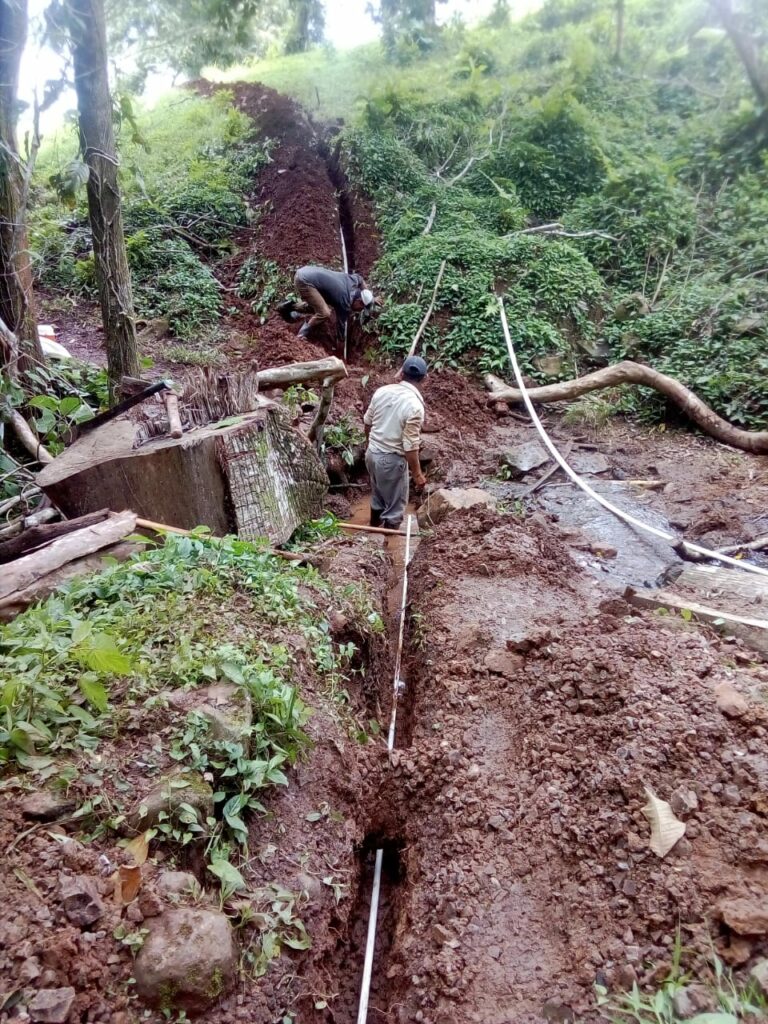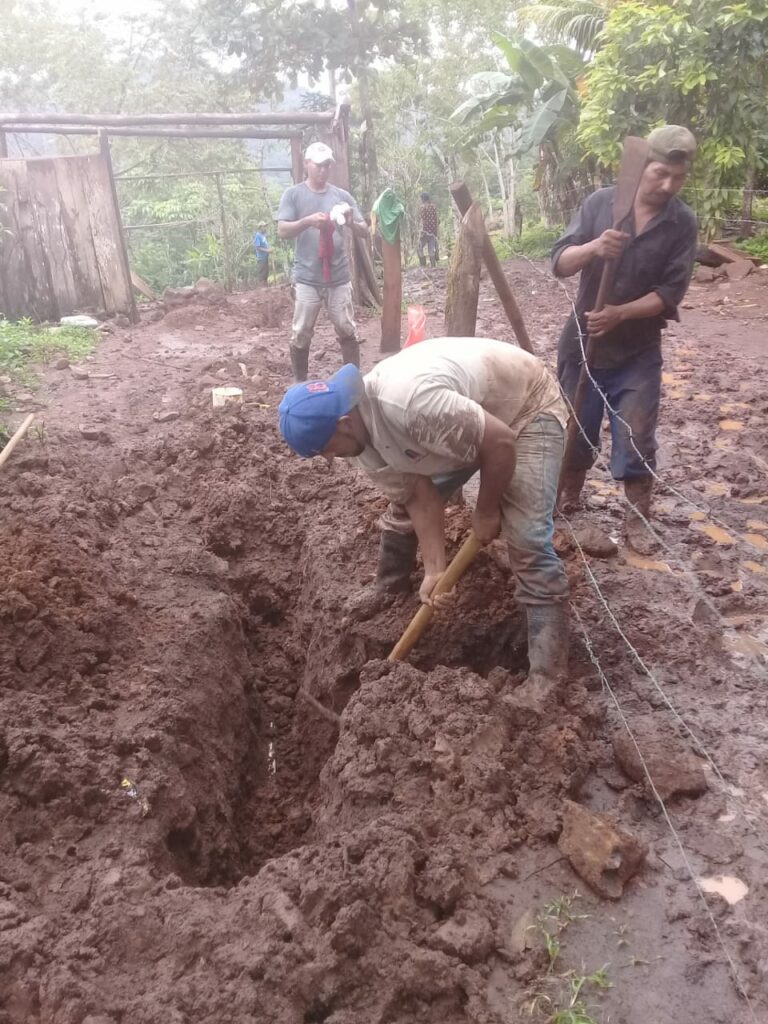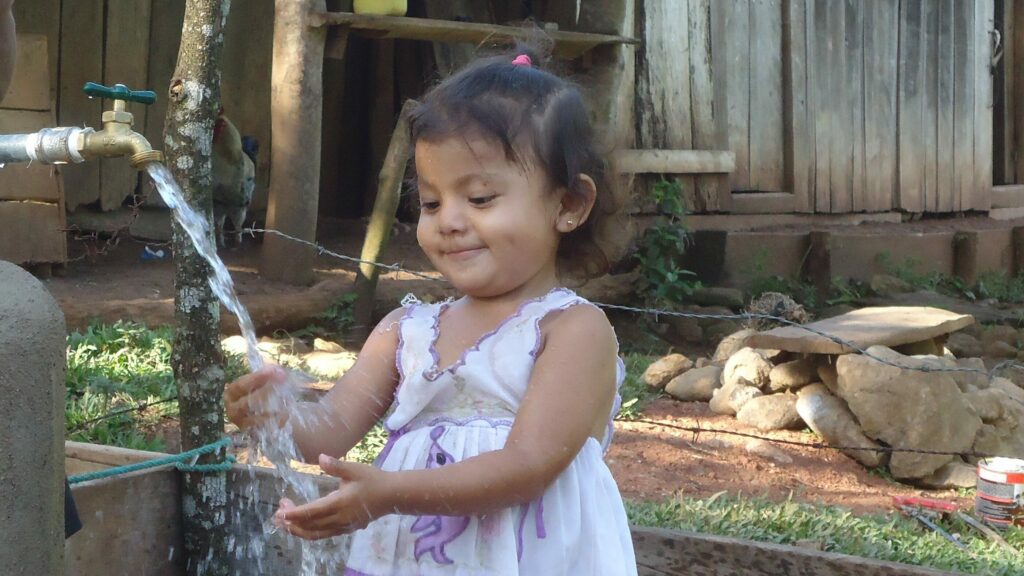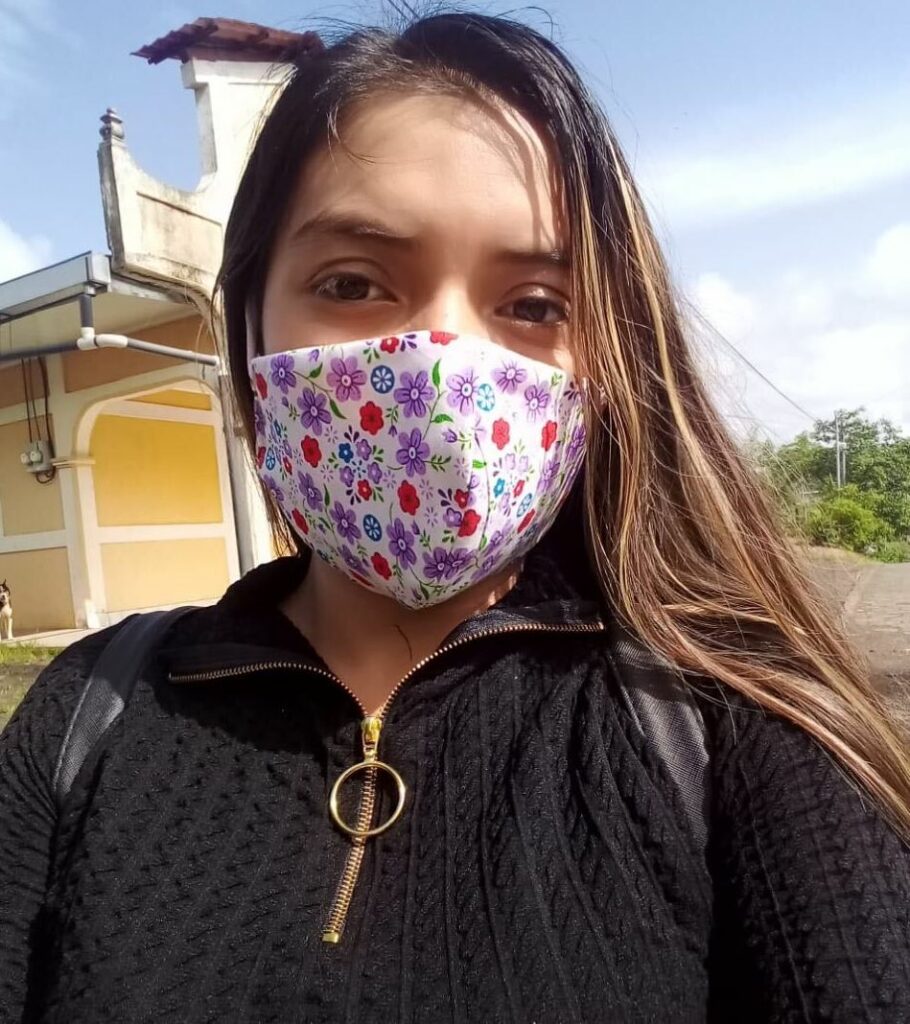In spite of the unusual conditions COVID has placed on our work in Nicaragua, projects continue to advance. Our water system in El Aulo is nearing completion as latrines are progressing steadily and the final touches are put on the distribution system. Because the border with Costa Rica has been closed for weeks, one particular material needed for latrines was in short supply. It has finally arrived, however, and latrine construction has begun again. All that is left to do is to finish trenching to one final home, install the water meters on all the points of use, and complete the latrines. We hope to have this done by the end of July.
In Malakawais things are moving along as well as could possibly be hoped for and the project is on schedule. There was one setback as the mold being used to form the concrete blocks for the latrines was damaged, so they will have to use the spare mold that is currently in use in El Aulo but will soon be able to be transferred to Malakawais. Since they are well ahead of schedule for building the blocks for the latrines, however, this won’t hamper their timeline.
We wanted to show you where the families will begin to dig trenches. Below is an image of Selina and me and if you look to the horizon you will see a mountain, the water source for the families in Malakawais.
Tab Barker
Director of Operations



